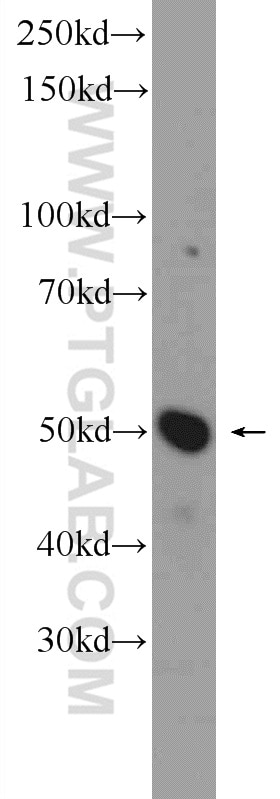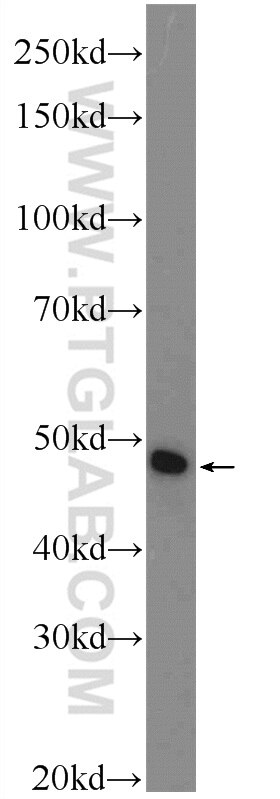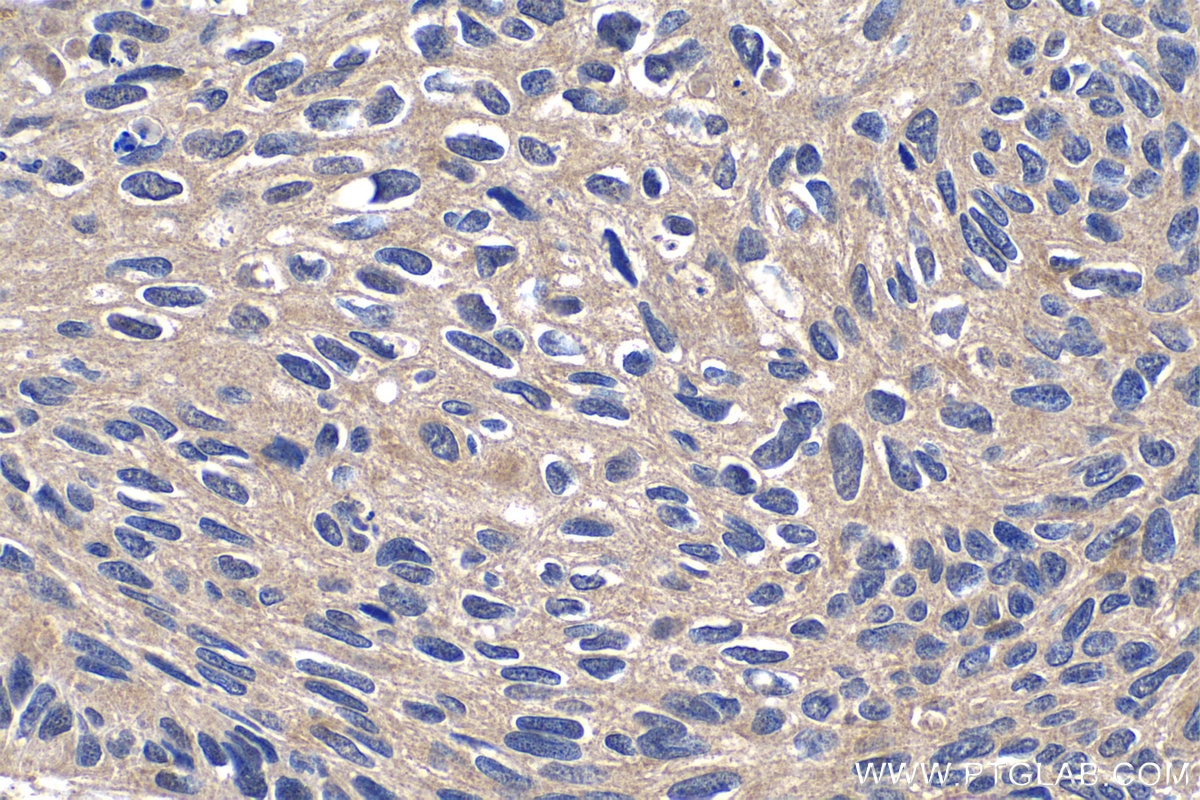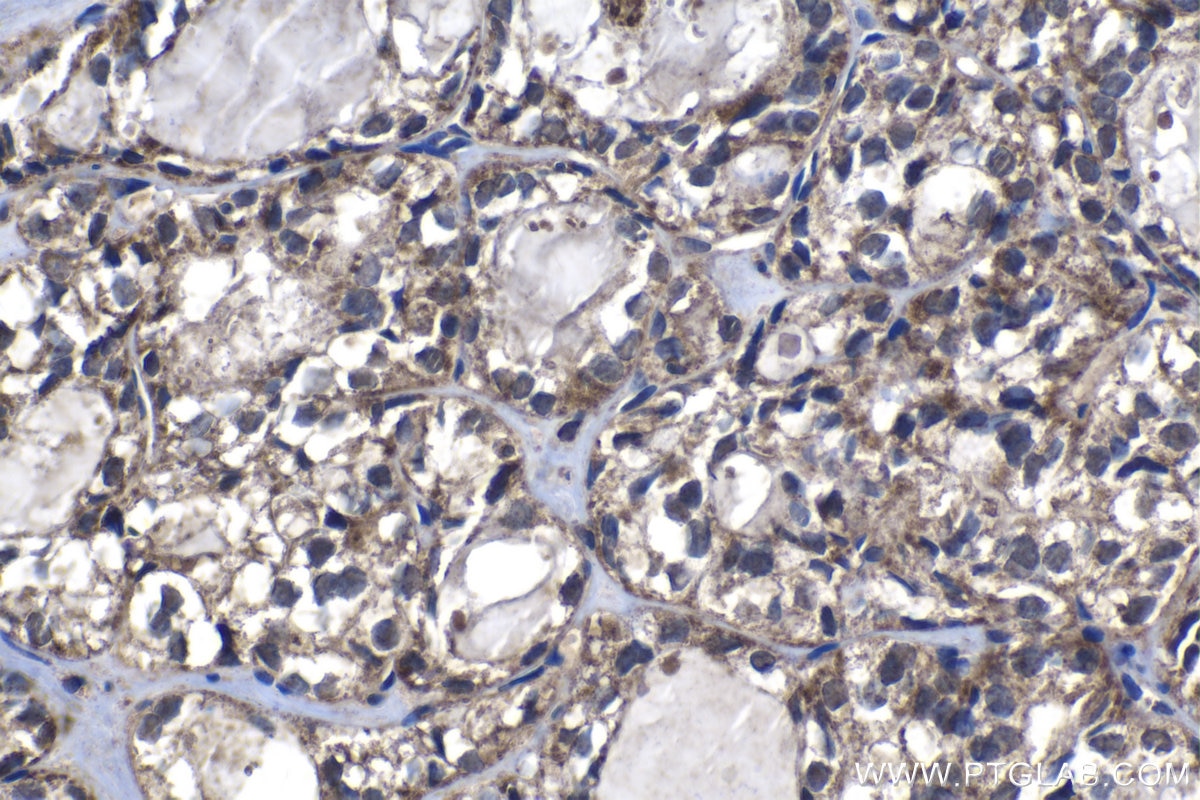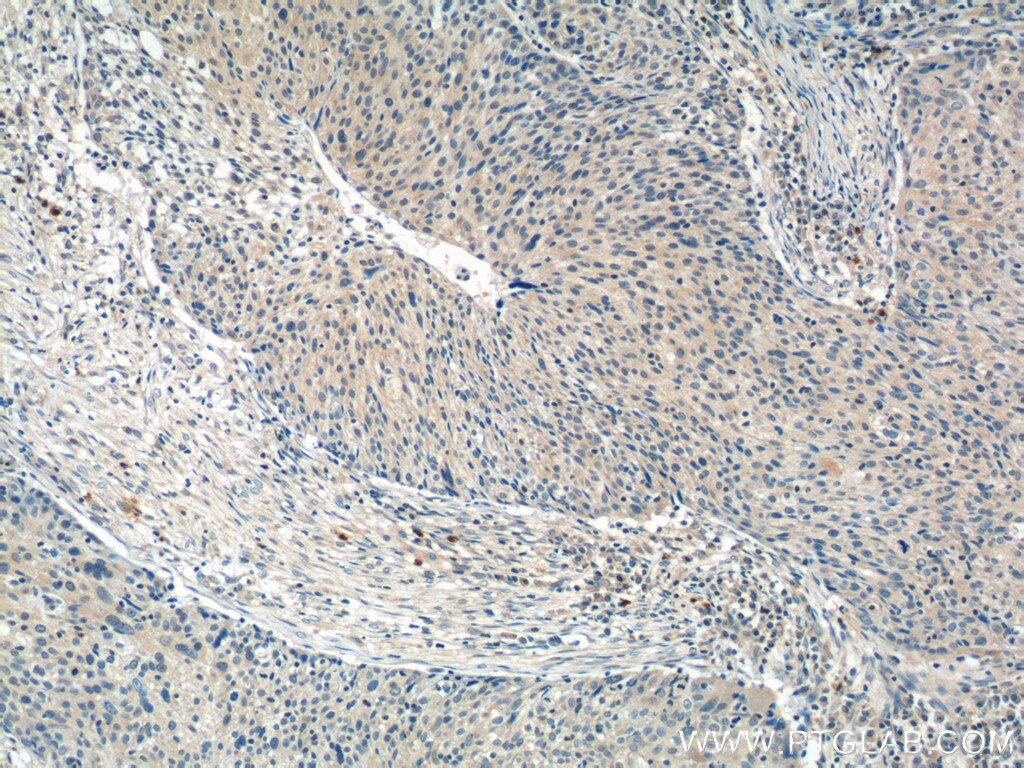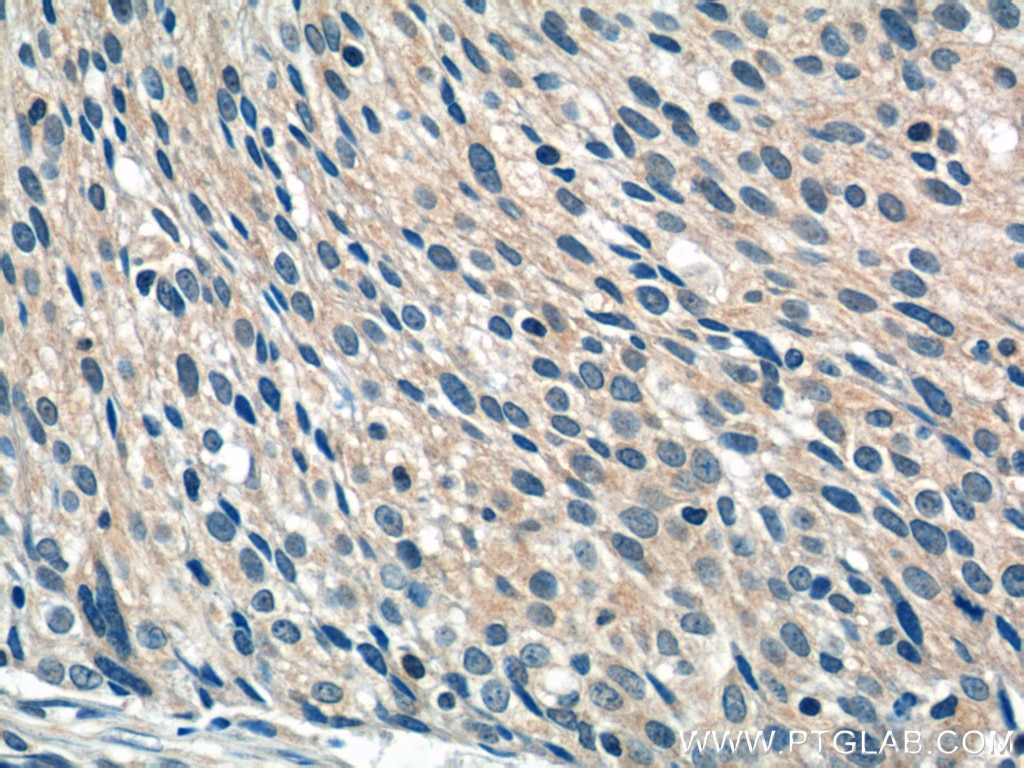Validation Data Gallery
Tested Applications
| Positive WB detected in | HEK-293 cells, Jurkat cells |
| Positive IHC detected in | human lung cancer tissue, human thyroid cancer tissue Note: suggested antigen retrieval with TE buffer pH 9.0; (*) Alternatively, antigen retrieval may be performed with citrate buffer pH 6.0 |
Recommended dilution
| Application | Dilution |
|---|---|
| Western Blot (WB) | WB : 1:200-1:1000 |
| Immunohistochemistry (IHC) | IHC : 1:50-1:500 |
| It is recommended that this reagent should be titrated in each testing system to obtain optimal results. | |
| Sample-dependent, Check data in validation data gallery. | |
Product Information
20478-1-AP targets WDR40A in WB, IHC, ELISA applications and shows reactivity with human samples.
| Tested Reactivity | human |
| Host / Isotype | Rabbit / IgG |
| Class | Polyclonal |
| Type | Antibody |
| Immunogen | WDR40A fusion protein Ag14349 相同性解析による交差性が予測される生物種 |
| Full Name | WD repeat domain 40A |
| Calculated molecular weight | 453 aa, 51 kDa |
| Observed molecular weight | 50 kDa |
| GenBank accession number | BC008893 |
| Gene Symbol | WDR40A |
| Gene ID (NCBI) | 25853 |
| RRID | AB_2878692 |
| Conjugate | Unconjugated |
| Form | Liquid |
| Purification Method | Antigen affinity purification |
| UNIPROT ID | Q5T6F0 |
| Storage Buffer | PBS with 0.02% sodium azide and 50% glycerol , pH 7.3 |
| Storage Conditions | Store at -20°C. Stable for one year after shipment. Aliquoting is unnecessary for -20oC storage. |
Background Information
WDR40A, also known as DCAF12, is a 51 kDa protein. It may function as a substrate receptor for CUL4-DDB1 E3 ubiquitin-protein ligase complex(PMID: 16949367). This antibody specifically recognises the 51 kDa protein.
Protocols
| Product Specific Protocols | |
|---|---|
| WB protocol for WDR40A antibody 20478-1-AP | Download protocol |
| IHC protocol for WDR40A antibody 20478-1-AP | Download protocol |
| Standard Protocols | |
|---|---|
| Click here to view our Standard Protocols |
